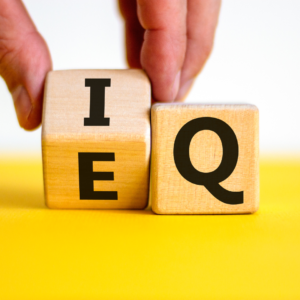Reflective practice is the process of intentionally reviewing and analysing your experiences, actions, and decisions in order to learn from them and improve future outcomes. It involves thinking critically about what worked well, what didn’t, and how things could be done differently next time. In today’s fast-paced financial environment, sharpening your technical skills isn’t enough—you also need to cultivate self-awareness and continuous improvement through reflective practice. This practice is more than just simple reflection—it’s a structured, purposeful exercise in self-assessment and professional growth.
The core of reflective practice is self-awareness—acknowledging strengths, weaknesses, successes, and failures to build on past experiences and enhance future performance.
How reflective practice helps professionals
For finance professionals—such as mortgage brokers, financial planners, accountants, and lenders—reflective practice is an invaluable tool for both personal and professional development. Here’s how it can be applied in their work:
Improved decision-making
Financial professionals are constantly making decisions, often in high-pressure environments. Reflective practice helps them:
- Learn from past decisions: By reviewing past outcomes, professionals can identify what influenced their choices and whether those decisions were effective.
- Refine strategies: They can then refine their decision-making frameworks, leading to more accurate assessments, better risk management, and more informed decisions in the future.
For example, a mortgage broker might reflect on a deal that didn’t close and ask: What signals did I miss? How could I have better communicated with the client? This reflection can improve how they approach future deals.
Enhanced client relationships
In finance, trust is paramount. Reflective practice enables professionals to:
- Understand client needs more deeply: By reflecting on previous client interactions, professionals can assess what worked, what didn’t, and how to better tailor their communication to individual clients.
- Build stronger relationships: Reflecting on client feedback or misunderstandings can lead to improved service and more personalised advice, strengthening the bond with clients.
For instance, a financial planner who reflects on a challenging meeting with a client may realise they didn’t fully explain a product in simple terms. Next time, they can adjust their communication to be clearer, enhancing the client experience.
Continuous professional development
In a constantly evolving industry, finance professionals must keep up with regulations, market trends, and best practices. Reflective practice supports:
- Ongoing learning: By regularly evaluating their work, professionals can identify areas where they need further education or training.
- Self-improvement: Reflection creates a mindset of continuous improvement, encouraging professionals to refine their skills and adapt to changes in the industry.
An accountant, for example, might reflect on a complex tax issue and realise that their knowledge of recent tax law changes is lacking. This could motivate them to seek further training and improve their proficiency.
Increased emotional intelligence
Dealing with clients, colleagues, and stakeholders requires emotional intelligence—the ability to recognise and manage one’s own emotions and understand the emotions of others. Reflective practice promotes:
- Self-awareness: By reflecting on how emotions influenced their behaviour in certain situations, professionals can better manage those emotions in the future.
- Empathy: Reflecting on interactions with others can help professionals better understand the emotional needs and perspectives of clients and colleagues, leading to stronger relationships and more effective communication.
For example, a lender who reflects on a tense negotiation might realise they were overly defensive, which escalated the conflict. By recognising this, they can adjust their approach to remain calm and constructive in future discussions.






